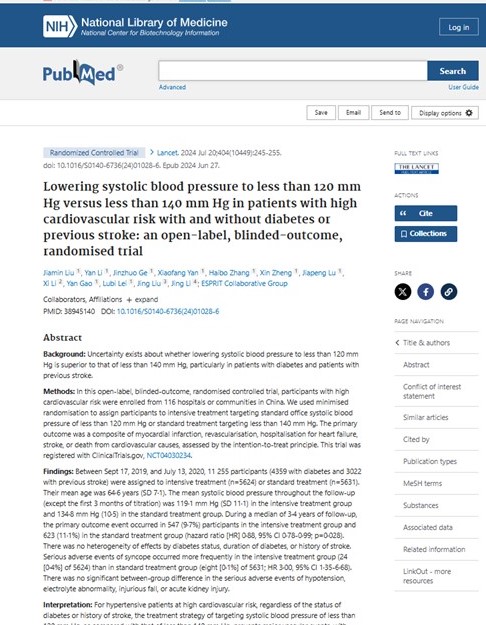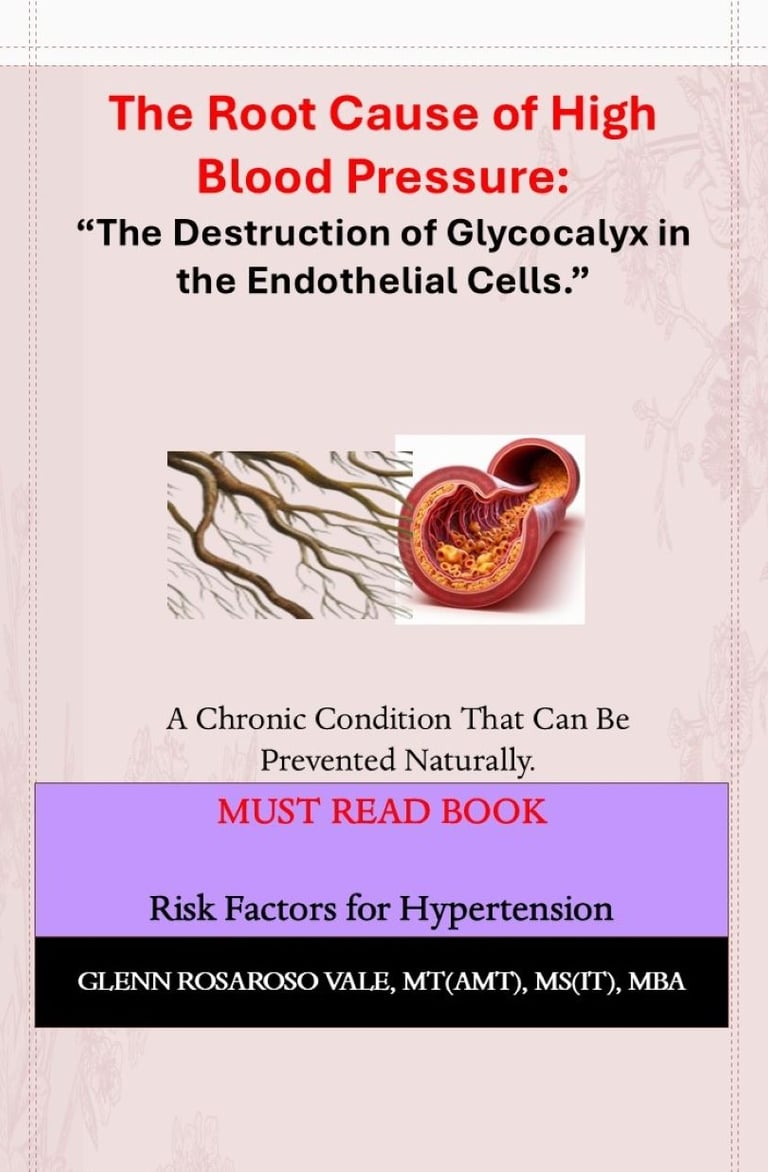"Uncover the truth behind the groundbreaking discovery of the causes of the world's biggest problems. 'The Root Causes' will change how you view the world!"
The Impact of Targeting Low Blood Pressure on Cardiovascular Risk: A Study Analysis
Managing blood pressure is a fundamental approach in preventing cardiovascular diseases, especially for individuals at high cardiovascular risk. As healthcare professionals strive for optimal management strategies, the question arises: how low should we aim for blood pressure levels? A recent open-label, blinded-outcome, randomized trial has shed light on this topic by investigating the impact of targeting systolic blood pressure (SBP) to below 120 mm Hg compared to the traditional goal of less than 140 mm Hg. The results could potentially reshape treatment protocols for high-risk patients, notably those with diabetes or a history of stroke. Key Findings from the Study The trial included a diverse group of participants, specifically targeting individuals who were at heightened cardiovascular risk. By analyzing the outcomes of those whose systolic blood pressure was managed to be below 120 mm Hg, the researchers made significant observations concerning cardiovascular events and overall health outcomes. The study revealed that those who achieved this lower blood pressure target experienced a marked reduction in cardiovascular events compared to those managed under the standard practice threshold of 140 mm Hg.
DISEASES
Glenn Rosaroso Vale, BSMT, MS(IT), MBA
12/1/20242 min read


Introduction
Managing blood pressure is a fundamental approach in preventing cardiovascular diseases, especially for individuals at high cardiovascular risk. As healthcare professionals strive for optimal management strategies, the question arises: how low should we aim for blood pressure levels? A recent open-label, blinded-outcome, randomized trial has shed light on this topic by investigating the impact of targeting systolic blood pressure (SBP) to below 120 mm Hg compared to the traditional goal of less than 140 mm Hg. The results could potentially reshape treatment protocols for high-risk patients, notably those with diabetes or a history of stroke.
Key Findings from the Study
The trial included a diverse group of participants, specifically targeting individuals who were at heightened cardiovascular risk. By analyzing the outcomes of those whose systolic blood pressure was managed to be below 120 mm Hg, the researchers made significant observations concerning cardiovascular events and overall health outcomes. The study revealed that those who achieved this lower blood pressure target experienced a marked reduction in cardiovascular events compared to those managed under the standard practice threshold of 140 mm Hg.
Implications for Treatment Protocols
These findings prompt reconsideration of current treatment protocols. Lowering SBP to below 120 mm Hg may offer substantial benefits, especially for populations at high cardiovascular risk. The evidence suggests that such a strategy could reduce rates of myocardial infarction, stroke, and other serious cardiovascular conditions. Consequently, health care providers must carefully weigh the benefits and potential risks of aggressively treating blood pressure.
However, it is crucial to approach this new strategy with caution. While the findings are promising, individual patient characteristics must be taken into consideration. Factors such as age, co-existing medical conditions, and the presence of side effects from medications used to lower blood pressure should guide clinical decisions. Continuous monitoring and individualized approach remain paramount in effectively managing blood pressure for high-risk patients.
Conclusion
The recent study offers compelling insights into the impact of lowering blood pressure to below 120 mm Hg on cardiovascular risk. The clear reduction in adverse cardiovascular events among participants targets a population that has historically faced significant health challenges. As guidelines evolve from these findings, it is imperative for healthcare professionals to assess the implications for their practice. With careful consideration and tailored treatment plans, the potential for improved health outcomes for patients with high cardiovascular risk can become a reality.


Health
Understanding illness to empower your well-being journey.
Wellness
Knowledge
info@rootcauseprevention.com
903-268-6664
© 2024. All rights reserved.
grfv@sbcgloal.net

